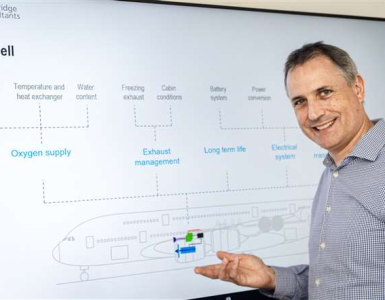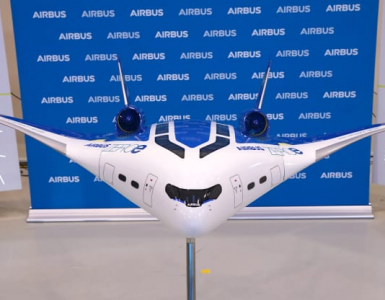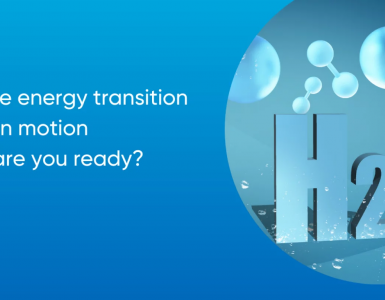Battery EVs vs Fuel Cell EVs, Decarbonizing the Transport Sector – Julio C. Garcia-Navarro.
I just read a short article on CNET where they report that apparently e-fuels (i.e., synthetic gasoline) lead to 40% more CO2 emissions than EVs (the article is referring in particular to BEVs).
I think that decarbonizing the transport sector is a slightly more complicated issue than just accounting for the emissions of the cars; we must take into account several factors that are critical to the vehicles as well as the fuels.
I would like to take this opportunity to lay out a couple facts about how using hydrogen could lead to a more efficient decarbonization of the transport sector:
🔥 What about we co-host a webinar? Let's educate, captivate, and convert the hydrogen economy!
Hydrogen Central is the global go-to online magazine for the hydrogen economy, we can help you host impactful webinars that become a global reference on your topic and are an evergreen source of leads. Click here to request more details
1. Hydrogen-based powertrains lead to lower weights of vehicles
I compared the weight of the storage of HDVs and LDVs and here are my findings: for the same range (500 km for LDVs and 400 km for HDVs), having battery storage would increase the vehicle’s weight by 500 and 3100 kg (respectively for LDVs and HDVs), while having H2 tanks only add 97 and 450 kg to the LDVs and HDVs, respectively.
This means that the battery storage is 4 to 6 times heavier than H2 storage to achieve the same range in LDVs and HDVs.

This weight consideration does not include the difference in power train weight of H2 vehicles with respect to a battery powertrain, and I could see how BEVs could make up for their heavier storage by having a lighter powertrain (since FCEVs often employ a small battery and there’s of course the fuel cell and its respective BoP) but I doubt that a 190 kW fuel cell system (as used by the Hyundai Xcient truck) weighs so much more than a 120 kW fuel cell system (as used by the Toyota Mirai).
All in all, this quick calculation shows that HDVs powered by H2 make far more sense than battery-powered HDVs.
It is easier to decarbonize the transport sector using hydrogen because of better energy density and an easier accountability system for driving on truly green energy.
Julio C. Garcia-Navarro
2. Fuel Cell EVs make it easier to hold the energy providers accountable for making the fuel green
According to Eurostat, less than 20% of the electricity production in the EU came from renewable sources, which means that 80% of each kWh going into a BEV has carbon emissions.
Since all Battery EV charging stations (including the home charging stations) are distributed across the entire network, there is no way to guarantee that every kWh going into every Battery EV is green unless either a) every household makes the conscious choice of buying their electricity from a green, or b) every energy utility that serves every home of a Battery EV owner and every public charging station ensures that their retail electricity is actually green.

Hydrogen, on the other hand, is more likely to follow a similar supply chain as gasoline or diesel to reach consumers: there will be public Hydrogen Refueling Stations (HRS) throughout the cities and rural areas, perhaps even substituting the petrol stations of today.
This means that Fuel Cell EV owners could have the choice to get their hydrogen from a HRS that dispenses green hydrogen or (even better) HRS operators could be forced to only sell green hydrogen to Fuel Cell EV users. It is easier to hold HRS operators (that are very few as of today) accountable to selling green hydrogen to consumers, than it is to force all electricity consumers (both Battery EV charging station operators and households) to only consume green electricity.
In the end, both Fuel Cell EVs and Battery EVs can thrive in the market. The challenge of decarbonization of the mobility sector is a herculean task that can only be solved when we decarbonize the complete supply chains of both hydrogen and electricity.
That being said, I believe it is easier to enforce rules towards decarbonization when they are directed at a few players in the market (i.e., HRS operators) than when we try to steer the complete electricity network towards full decarbonization. One system could raise awareness and increase the momentum towards reaching our climate targets, while the other has been a part of a decade-long debate that has led us to decarbonize only 20% of our electricity in Europe.
About the author
Dr. Julio C. Garcia-Navarro is a Hydrogen Project Coordinator at New Energy Coalition. He has worked in the hydrogen industry for nearly a decade, on topics such as hydrogen electrolysis, compression, and transportation. Besides hydrogen, he is passionate about Renewable Energy Systems and the Internet of Things.
READ the latest news shaping the hydrogen market at Hydrogen Central
Copyright © Hydrogen Central. All Rights Reserved.








